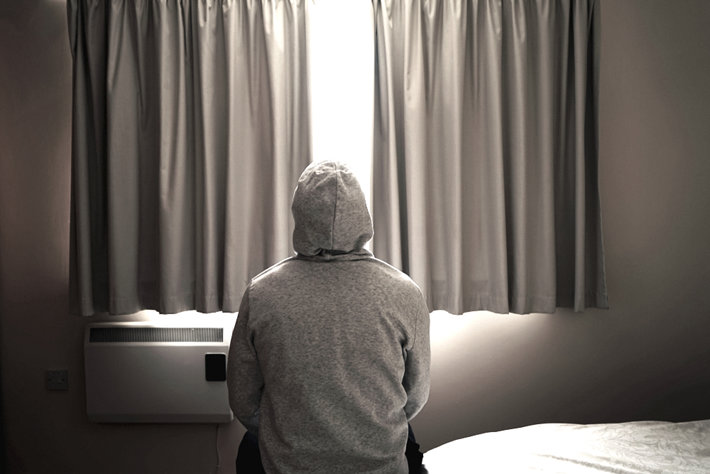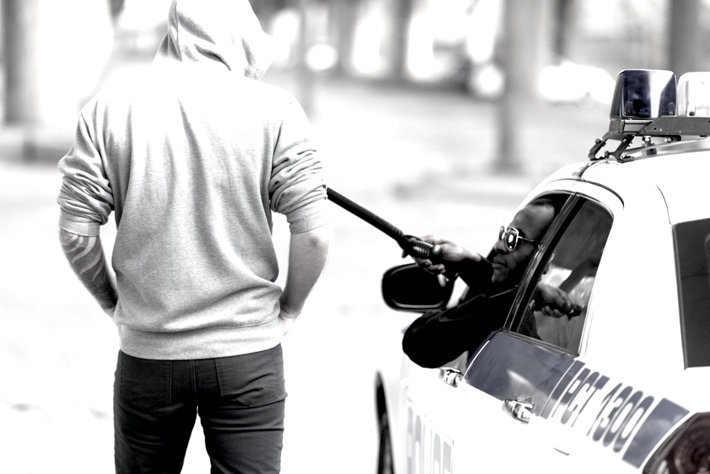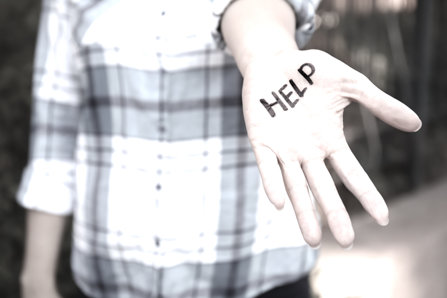How Should We Treat Addicts in Our Society?

We can all agree that our nation is struggling with a difficult substance abuse crisis. But what we can’t seem to agree on is how we are going to address this problem. Time and time again, we have the proof displayed for all to see that rampant incarceration, stereotyping, and criminalization of drug users does not work. Yet we continue to take this approach in our efforts to address addicts.
Incarceration Does not Work
Merely incarcerating an addict for using drugs or for possessing drugs is rather foolish. No jail cell will serve to help an addict overcome their dependency habit, yet jail cells are where we choose to send our nation’s drug users. This is a mistake.
More than forty years ago, President Richard Nixon called for a “War on Drugs.” Since then, the drug problem has considerably increased. And every year, we incarcerate more and more people for drug use or drug possession, costing Americans millions of tax dollars and further stuffing our already over-full prison system.
According to the Federal Bureau of Prisons, as of Dec 2018 there were about 180,429 federal prisoners. Around 77,649 these inmates were serving sentences for drug-related offenses, even if that offense was nothing more than being caught using drugs.
And from a timeline perspective, our rate of incarcerating addicts has gone up alarmingly. Our nation jailed five thousand drug users in 1980. We jailed four-hundred fifty thousand drug offenders in 2016. It’s one thing to arrest a drug criminal for dealing drugs to addicts. That makes sense. But when we arrest addicts, individuals whose only crime was falling prey to the use of mind-altering substances, we make a big mistake. A jail cell will never help an addict. Neither will stereotyping addicts or labeling them as criminals.
How Seattle is Overturning Archaic Stereotypes on Addiction

Since 2012, the city of Seattle, Washington has been utilizing a very proactive approach in their efforts to curb the city’s drug use statistics. The city created a program called the Law Enforcement Assisted Diversion program, or LEAD. The goal of the program was, rather than sending arrested addicts to jail, to connect them directly with drug and alcohol addiction treatment services.
According to the “Recidivism Report,” a detailed, non-biased review of LEAD’s effectiveness, the people in the LEAD program were sixty percent less likely to be arrested within the six months following their transfer to addiction treatment than recovering drug users not in the LEAD program.
Seattle is already showing what positive benefits occur when drug addicts are helped, not stereotyped, and jailed. What would our nation be like if every city could follow Seattle’s model?
The Only Way to “Address” Addicts is to Help Them

Stereotyping addicts does not work. Criminalizing them does not work. Treating them as victims does not work. Treating them as the dregs of society does not work. Treating them as diseased patients does not work. Treating them as individuals who made a series of bad decisions and who now need help getting out of the situation is the right approach. There are a lot of wrong ways to address addicts, and there is really only one right way. And that right way is to treat them with compassion and understanding and to insist that they get proper treatment at a drug and alcohol rehabilitation program.
Addressing Addiction with Residential Treatment and What it Means to be Free
Freedom is something we can all get behind. But a society that experiences freedom from addiction, not freedom to express oneself through addiction, would be more ideal. The argument of criminalization or decriminalization of drug use is one best left for a different day, but we can all agree that if people suffer from addiction and they want to get free from it, we should help them do so. We should not stereotype them or punish them in any way.
Everyone deserves a chance at freedom, freedom to live, freedom to breathe, freedom to follow one’s path to a better life and a better condition for themselves and their loved ones. Addiction, a horrible conflict that comes from repeated drug use or alcohol misuse, by its very definition inhibits one’s freedom because addiction is a forceful habit that one has no control over.
With no ability to control one’s own life, how can one ever be truly free? Let’s dedicate our focus to helping others overcome addiction, and let’s treat addicts as human beings, good people who have fallen on hard times, not criminals or degraded individuals who need punishment and isolation.
Sources:
- https://www.bop.gov/about/statistics/statistics_inmate_offenses.jsp
- http://sentencingproject.org/wp-content/uploads/2016/01/Trends-in-US-Corrections.pdf
- http://leadkingcounty.org/lead-evaluation/
- https://www.aclu.org/blog/smart-justice/mass-incarceration/jail-doesnt-help-addicts-lets-stop-sending-them-there
Reviewed and Edited by Claire Pinelli, ICAADC, CCS, MCAP, RAS, LADC


